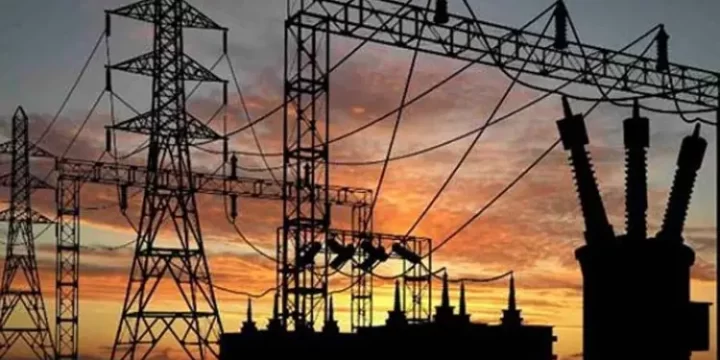The Senate has called on the Federal Government to stop the use of public funds to enrich electricity Distribution Companies (DisCos), warning that the current practice of funding power infrastructure for communities—only to have such assets taken over by private firms—is unjust and unsustainable.
During plenary on Thursday, Senator Yunus Abiodun Akintunde, who represents Oyo Central and chairs the Senate Committee on Environment, raised concerns over how government funds are routinely used to purchase transformers and other power equipment for communities, but once the installations are completed, they are handed over to DisCos without any compensation to the government or the benefiting communities. He noted that this practice effectively amounts to using taxpayers’ money to subsidise the operations of private companies.

The senator shared a personal example, saying, “I bought a transformer with government funds and handed it over to a community. DisCos demand payment for installation—and once it is energised, the asset becomes theirs. That’s public money building private monopolies.” He warned that if unchecked, this approach could worsen the existing inequities in the power sector and continue to deprive the Nigerian people of the benefits they rightfully deserve from government interventions.
Senator Akintunde also emphasised that the issue of subsidies in the power sector should not be dismissed outright, as subsidies are used globally to support vulnerable populations and critical sectors. He cited countries like the United Kingdom, where energy subsidies are part of long-term strategies to protect consumers and ensure economic stability. However, he stressed that the Nigerian subsidy regime must be transparent and structured in a way that ensures that public resources benefit the masses and not just corporate entities.
He pointed out that Nigeria’s electricity sector continues to struggle due to a fundamental imbalance in its structure. While generation and distribution have been privatised, transmission remains under the control of the federal government. The current state of the national grid, according to him, is outdated and cannot support the demands of modern electricity consumption. He noted that most transmission lines and substations are obsolete and cannot efficiently transport electricity from generation points to end users. As a result, even improvements in generation capacity are rendered ineffective because the electricity cannot be reliably delivered to consumers.
The senator further warned that unless the transmission infrastructure is upgraded, the entire power value chain would remain weak, and Nigerians would continue to suffer from poor supply despite investments in generation and distribution.
His comments come amid growing frustration across the country over rising electricity tariffs without corresponding improvements in power supply. Senator Akintunde recalled that he had previously sponsored a motion calling for a halt to further tariff increases until DisCos show clear and measurable improvements in service delivery. He argued that the justification for past tariff hikes had not materialised, and yet Nigerians are being asked to pay more for erratic and unreliable electricity.
The Federal Government, through the Ministry of Power, has also admitted to the financial strain imposed by the current subsidy framework. In a recent statement, the Minister of Power, Adebayo Adelabu, disclosed that the government is spending over N200 billion monthly to subsidise electricity, and yet many DisCos are not meeting their financial obligations. He cited particularly low revenue remittance from some northern DisCos, some of which are said to have paid less than 30 percent of their expected dues in 2024.
In response to these issues, the Federal Government has announced plans to overhaul some of the weakest-performing DisCos, beginning with two identified in both the north and south of the country. This pilot reform initiative, which includes support from international development partners, aims to restructure operations and enforce regulatory compliance in the electricity distribution sector.
However, the Senate insists that deeper reforms are needed. Akintunde and other lawmakers are calling for an end to the practice where government funds are used to buy transformers and electrical equipment for communities without clear legal frameworks that preserve public ownership of those assets. They argue that this policy creates a perverse incentive where private DisCos enjoy the benefits of infrastructure development without taking on the associated financial risks.
There are also growing calls within the Senate and the wider National Assembly for a full audit of government investments in the power sector since privatisation began over a decade ago. Lawmakers want to know how much has been spent, where the money went, and what outcomes were achieved. Some senators have alleged that several DisCos, some of which include government shareholding through agencies like the Ministry of Finance Incorporated (MOFI), have failed to remit dividends or provide performance reports for years.
The Senate’s position reflects a broader dissatisfaction with how the power sector has been managed since privatisation. Lawmakers are now pushing for reforms that not only protect public funds but also ensure that Nigerians have access to reliable and affordable electricity. They maintain that if the government must continue investing in electricity infrastructure, then such investments must come with clear ownership agreements and be focused on public benefit rather than private profit.
The debate continues as Nigerians await meaningful change in a sector that has long under delivered on its promises.
Support InfoStride News' Credible Journalism: Only credible journalism can guarantee a fair, accountable and transparent society, including democracy and government. It involves a lot of efforts and money. We need your support. Click here to Donate
